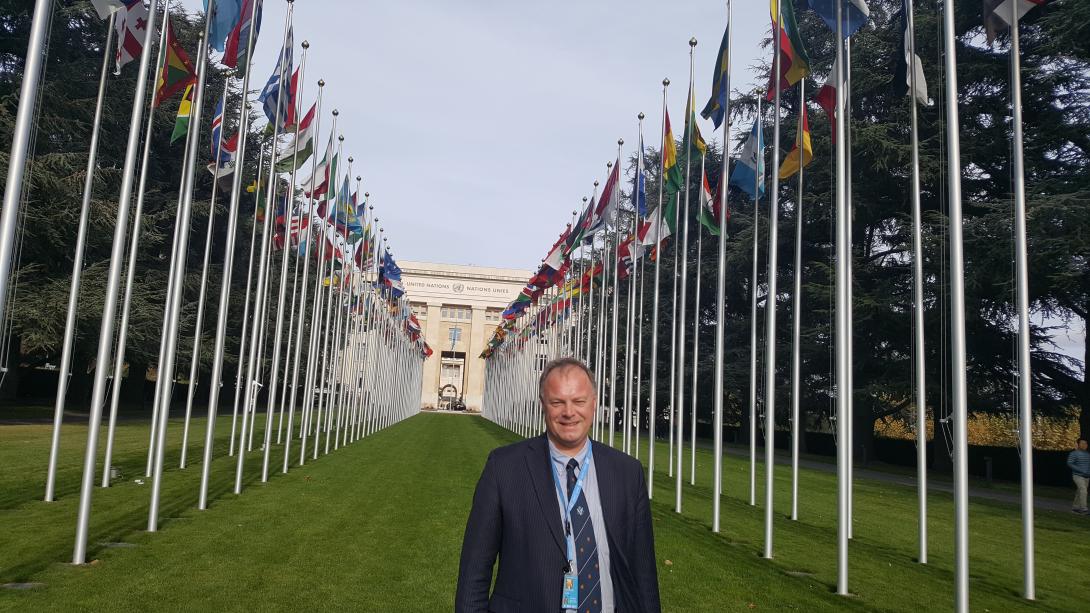
By Henk Jan van Schothorst
The World Health Organization (WHO) will hold its annual meeting in Geneva from May 27 to June 1. Months of feverish discussions on a global pandemic treaty came to a standstill on May 24. Almost unnoticed, we had entered a legally binding pandemic treaty, with the WHO as a global health agent. It is interesting to see whether the 194 member states will reach an agreement this week or whether the negotiations will be extended by six months or even a year.
Developing countries are divided and hesitant regarding what many consider to be a colonial and unfair treaty. The Dutch government, on the other hand, wants to push the treaty, together with the EU as a co-initiator, through its own legislation despite a parliamentary motion. According to experts, a possible new health crisis is not the main reason for the WHO's haste. Supporters want to finalize the treaty before the US elections (November). Due to the suspected Chinese influence at the WHO and the lack of impartiality and expertise during the COVID-19 pandemic, Trump announced plans for the US to withdraw from the WHO. Insiders like Lawrence Gostin, director of the WHO Center for Cooperation on Global Health Law, are thinking that US Republicans and Trump will reject the pandemic treaty. “Nobody says it, but Trump is definitely the elephant in the room,” states Gostin.
Infringement
What is the case with the pandemic treaty? As we continue to recover from the devastating COVID-19 pandemic and the various policy responses to it, the WHO is busy drawing up a pandemic treaty. The idea behind the treaty is to be globally more prepared for and responsive to pandemics in a coordinated manner. Although the idea for such an "instrument" may be noble, the mandatory treaty text that is being put to the vote is extremely worrying.
A cause for serious concern is the ‘One Health Initiative’. This initiative aims to merge human, animal and environmental health. That would give the WHO unprecedented power. Through this initiative, the WHO could manage human, agricultural and animal health policy in a country in detail. An international, unelected body would then control a country's domestic policy and thus infringe on its sovereignty.
In addition, the WHO, together with many signatory states, considers vaccines very important for combating pandemics. However, the WHO Pandemic Treaty now calls them the only sufficient means to effectively combat pandemics. Pushing through vaccines, sometimes insufficiently tested - and we are not yet talking about digital vaccination passports as a possible Trojan horse - can affect personal freedom of movement and the national health policy of member states.
Under pressure
Another concern is the ambiguous criteria for declaring pandemics. Under the treaty, small outbreaks can lead to a state of alert that may not even be necessary. The tricky thing is that the treaty gives the WHO the right to put pressure on countries that do not comply with the WHO action plan for these "pandemics".
This pressure is visible, among other things, in the formation of regional blocs between WHO member states. According to the pandemic treaty, a regional bloc can bind a member state to its conditions without consultation. The European Union does this, for example, by almost obliging its member states to sign the treaty. The state however, is autonomous. The notion therefore that a country, because it belongs to a regional bloc, is bound by the treaty conditions, is outrageous. This deprives countries of their constitutional rights and undermines democratic principles.
Affecting freedom of expression, religion and research by obliging Member States to eliminate certain 'misinformation and disinformation' about scientific research or health products is a further problem.
More time needed
Recently, the WHO failed to meet its self-imposed deadline for submitting a final version of the pandemic treaty (Article 55). When implementing this treaty, the International Health Regulations (IHR, drawn up in 2005) would also have to be revised. The fact that the WHO want to introduce these regulations so hastily, possibly in connection with Trump, raises questions. Treaty changes and their ratification are crucial matters and take a lot of time.
Countries should realize that allowing the implementation of the pandemic treaty would give the WHO the power to operate beyond its current legal authority. It is therefore necessary to recognize that the treaty threatens the national sovereignty and democratic rights of countries and undermines the personal freedom of individuals.
The WHO should therefore not be given any commercial interests or more power. It must retrace its steps and remain a non-partisan organization concerned only with health, free from conflicts of interest and progressive agendas.
The author is director of Christian Council International (CCI). He wrote this article in collaboration with Wilmer Hak (CCI Policy officer Geneva) and Sylvia Mesesi (CCI Policy Officer Kenya, Africa). CCI is in Geneva for advice and supervision.
Published on May 28, 2024 in the Reformatorisch Dagblad: https://www.rd.nl/artikel/1065021-met-pandemieverdrag-wordt-who-mondiale-autoriteit